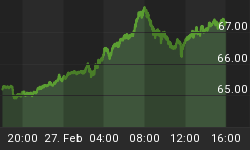Back in November, 2010, I wrote that the current tussle in the market "was an epic battle. Force against force. Titan v. titan." Back in November, 2010, we had an overbought, overvalued, and overly bullish market, that was built on a poor foundation, versus the buyer of last resort, the Federal Reserve. That market should have rolled over, but we know what happened next as the Fed kicked off its asset purchase program known as QE2. The market went on a relentless tear. The winner by technical knockout: the Fed.
I say "technical" because we all know that QE2 did little to help the real economy, and whatever stock market gains were made have been reversed as prices are back at November, 2010 levels. I wrote this back on October 26, 2010: "What is clear is that the stock market is not the economy, and the Fed's actions appear to help Wall Street more than Main Street. I don't think that is their intentions, but maybe monetary policy can only go so far in its effects, and this recession/ depression will just need the tincture of time before we see the economy on the mend. In other words, despite the Fed's action, the economy will heal itself on its own time. However, that is the risk with all this meddling. It is unlikely to have an impact and I think there is significant risk that it could make things worse (i.e., prolong the healing phase)." How true is that today?
Fast forward to November, 2011, and we find ourselves in a similar situation. We have an overbought, overvalued, and overly bullish market that has arrived at this point courtesy of one of the strongest Octobers on record. Like 2010, the economy is on the brink of recession. Instead of the Fed, we now have the European Central Bank or some such entity to come to the rescue. It is their turn. As I wrote back in 2010: "There is only one reason to be bullish and that is the Federal Reserve is backstopping this market." We can substitute those words "Federal Reserve" with ECB or IMF or China.
And that is where this market stands folks? Back in 2010, I wrote: "The data says that the market should rollover. QE2 and POMO is a force that says "happy days are here again"." In 2011, it is deja vu all over again! We just need to find a new entity to bail out the markets and paper over our problems.
The stakes are high and our economic leaders know this. They will do everything in their power to stem the inevitable. Will the recent up surge in momentum give hold to a new trend higher? I honestly don't know. The data says "no". The bullish trends in the Dollar and Treasury bonds say "no". Because like last year, those things won't matter until they do.















